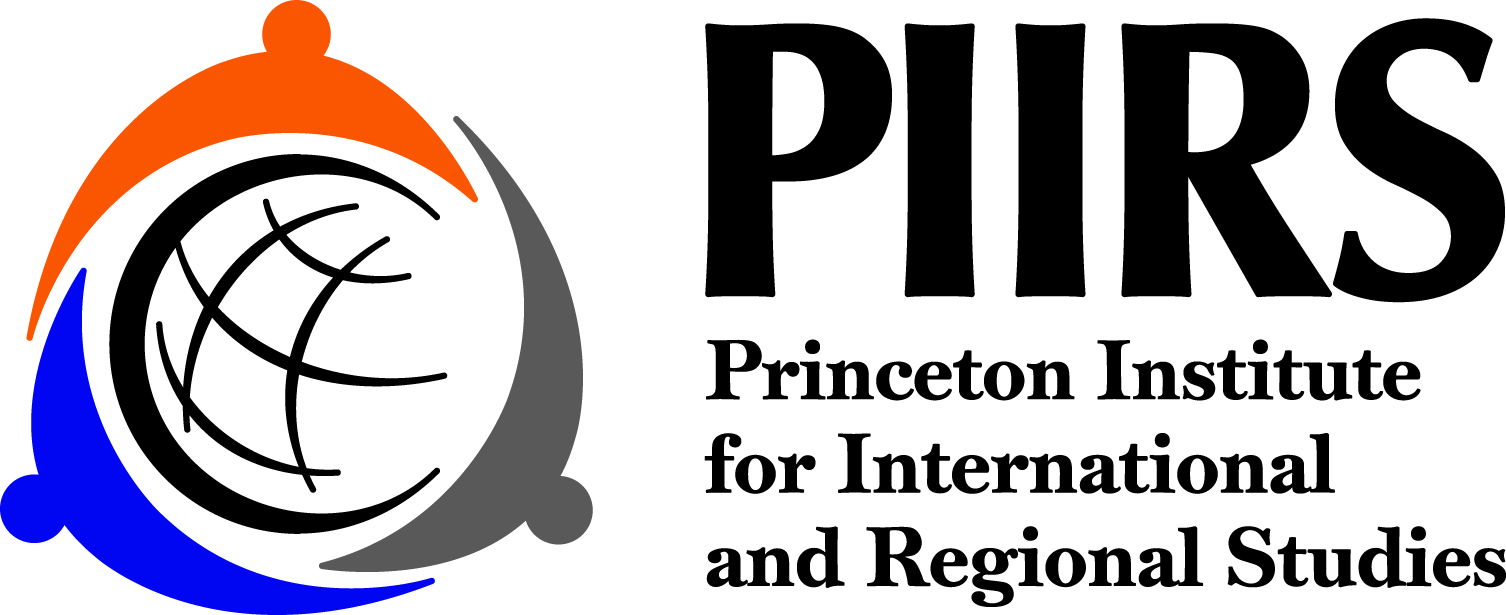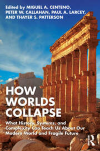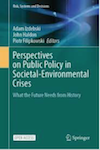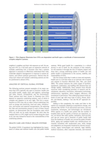PIIRS Global Systemic Risk
Research Community at Princeton University
Princeton's hub for the interdisciplinary study of Global Systemic Risk. Learn more about our mission and the group here.
Featured Content
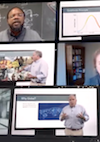
Fall, 2021Link to Preview
"Online Course: Global Systemic Risk"
What is globalization and how does it work? How can we understand the process as a whole? How are the parts of the world linked? What are the risks of living in a world where “no one is in charge”?
Princeton University and GSR have teamed up to create a free online course on Global Systemic Risk. Prof. Miguel Centeno takes learners through modules designed for students at all levels, and interveiws experts from around the world to bring students a rich a well rounded perspective on the risks associated with living in a complex and interconnected world.
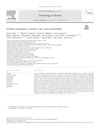
Fall, 2021Link to Article
"Artificial Intelligence, Systemic Risks, and Sustainability"
GSR directors and researchers Miguel Centeno, Paul Larcey, Thayer Patterson, and Peter Callahan collaborate with Victor Galaz, Amar Causevic, Irina Brass, Seth Baum, Darryl Farber, Joern Fischer, David Garcia, Timon McPhearson, Daniel Jimenez, Brian King, and Keren Levy to publish an article in Technology in Society about the risks of using AI and machine learning technologies in agriculure and the environment.
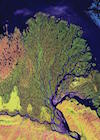
January, 2021Link to Essay
"There is, in Short, No Planet B"
WWS Vice Dean and Director of PIIRS GSR Miguel Centeno's essay was published in the January 2021 issue of Princeton Alumni Weekly. Professor Centeno's essay explores the challenges of managing crises in an increasingly complex and globalized world.

Thursday, February 27, 2020Link to Video
"Up To The Minute: The Coronavirus (COVID-19)"
WWS Vice Dean and Director of PIIRS GSR Miguel Centeno moderates a panel discussion about the Coronavirus. Panelists include Irini Daskalaki, MD., Bryan Grenfell, Doug Mercado, C. Jessica Metcalf, and David Wilcove.
Co-Sponsored by the Woodrow Wilson School of Public and International Affairs (WWS) & Princeton Institute for International and Regional Studies Global Systemic Risk (PIIRS GSR) the event was live-streamed for nearly 20,000 viewers, and is available here.
4:30pm, Friend Center, Room 101
With the ongoing COVID-19 pandemic, GSR on-campus events are postponed. Please stay tuned for more upcoming events in the future.
Recent Events
Please look at the "Events Archive" under the "Resources" tab for more past PIIRS GSR events

Spring 2021
Taping and Production of MOOC on Global Systemic Risk
Princeton University
In cooperation with leading scholars from around the world, PIIRS GSR is working to create a foundational MOOC on global systemic risk, which will be available through Coursera.
Miguel Centeno, Princeton University, Course Leader

Spring, 2021
Third Author's Colloquium on "Historical Systemic Collapse"
Princeton University
Miguel Centeno, Princeton University, Workshop Director
After several successful workshops, PIIRS GSR will continue to revisit the topic of historical systemic collapse. Participants from the initial workshops are collaborating on an edited volume, and final chapter drafts will be reviewed during this closed workshop.
Research
Link to ArticleMachine Intelligence, Systemic Risks, and Sustainability (Beijer Institue Discussion Paper, 2021)
Victor Galaz, Miguel Centeno, Peter W. Callahan, Amar Causevic, Thayer Patterson, Irina Brass, Seth Baum, Darryl Farber, Joern Fischer, David Garcia, Timon McPhearson, Karen Levy, Daniel Jimenez, Brian King, & Paul Larcey
Abstract:
Automated decision making and predictive analytics in combination with rapid progress
in sensor technology and robotics are likely to change the way individuals, communities,
governments and private actors perceive and respond to climate and ecological change.
Machine intelligent methods are already today being applied within a number of
research fields related to climate change and environmental monitoring. Investments
into applications of these technologies in agriculture, forestry and the extraction of
marine resources also seem to be increasing rapidly. Here we elaborate the various ways
by which machine intelligence is making progress in domains of critical importance for
sustainability, with a special emphasis on possible systemic risks. These risks include
a) algorithmic bias and allocative harms; b) unequal access and benefits; c) cascading failures and external disruptions; d) mis- and disinformation, and e) trade-offs between efficiency and resilience. We explore these emerging risks and discuss the limitations of current governance mechanisms in addressing the impact of MI risks on sustainability.
Link to ArticleCovid-19’s Socio-Economic Impact on Low-Income Benefit Recipients: Early Evidence from Tracking Surveys (2020)
Diana Enriquez & Adam Goldstein
Abstract:
The Covid-19 pandemic and ensuing economic crisis have introduced manifold dislocations in Americans’lives. Using novel survey data samples of SNAP recipients, we examine the socio-economic insecurities faced by low-income/benefits-eligible households during the early months of the crisis. Three repeated online surveys included measures of perceived and realized housing insecurity, food scarcity, new debt accrual, and recent job loss as indicators of Covid-induced shocks. Food insecurity and debt accrual worsened significantly over the course of April 2020. Job losses also compounded, albeit at a slower rate. The proportion of respondents reporting multiple types of precarity increased over the month. Compared to Latinx and White respondents, Black respondents were more likely to experience Covid-induced precarity across three out of four indicators, and they experienced more types simultaneously on average. The results provide early systematic evidence on the economic impact of the Covid-19 crisis on poor Americans, and racial disparities therein.
Link to BookGerrymandering in Social Networks (2019)
Carl T. Bergstrom & Joseph B. Bak-Coleman
Abstract:
Joseph Bak-Coleman, from Princeton's Ecology & Evolutionary Biology department, collaborates with PIIRS GSR on a number of projects. His most recent publication just appeared in Nature, and shows that information flow between individuals in a social network can be ‘gerrymandered’ to skew perceptions of how others in the community will vote — which can alter the outcomes of elections.
Link to BookMaking Electricity Resilient: Risk and Security in a Liberalized Infrastructure (2017)
Antti Silvast
Summary:
Antti Silvast was a visiting postdoctoral research fellow at the PIIRS Global Systemic Risk research community during the 2014-15 academic year. During this year, he worked to draft a manuscript of his book Making Electricity Resilient: Risk and Security in a Liberalized Infrastructureq, published by Routledge in May 2017. Drawing on multi-sited ethnographic field work, the book unpacks the work of the authorities, electricity companies, and lay persons that keeps energy systems from failing and helps them to recover from disruptions if they occur. It explores a number of sites in so doing: the historical security policy of energy infrastructures; control rooms where electricity is traded and maintained in real time; and electricity consumers in their homes.
Link to ArticleShy of the Character Limit: "Twitter Mood Predicts the Stock Market" Revisited (2017)
Michael Lachanski and Steven Pav
Econ Journal Watch 14(3)
Abstract:
In the 2011 article “Twitter Mood Predicts the Stock Market” by Johan Bollen, Huina Mao, and Xiaojun Zeng, published in Journal of Computational Science, the authors estimated a proprietary measure of Twitter ‘calm’-ness and found that this measure Granger-caused increases in the Dow Jones Industrial Average from February 28, 2008 to November 3, 2008. The paper and related work has attracted attention by journalists, finance practitioners, and academics. In just six years the paper accumulated 2,514 Google Scholar citations and 678 Web of Science citations (as of April 24, 2017). We subject the paper to thoroughgoing scrutiny, including an attempt to replicate the findings in-sample. Using the authors’ subsampling technique, we replicate their sample window (less the since-deleted and hence unavailable tweets) and extend it backwards to include 2007. Constructing multiple measures of Twitter mood using word-count methods and standard sentiment analysis tools, we are unable to reproduce the p-value pattern that they found. We find evidence of a statistically significant Twitter mood effect in their subsample, but not in the backwards extended sample, a result consistent with data snooping. We find no evidence that our measures of Twitter mood aid in predicting the stock market out of sample. Congruously, the hedge fund set up in late 2010 to implement the Twitter mood strategy, Derwent Capital Markets, failed and closed in early 2012.
Link to SlidesGlobal Systemic Risk: A Research Agenda - Presentation for The Royal Society, London (2017)
Miguel Centeno
Summary:
In January of 2017, Miguel Centeno, the director of the GSR research community, traveled to London to present the group's reserach at The Royal Society. His slides from that presentation are available at the link above.
Link to ReportSystemic Risk in Global Agriculture - Conference Report (2016)
Summary of proceedings of Princeton-Columbia joint-conference held October 24-25, 2014, in Princeton, New Jersey.
Abstract:
The emerging research fields of systemic risk and systems thinking provide insight into understanding and mitigating the current risks and challenges in our global agriculture network. Since the Green Revolution of the mid-20th century, the global agricultural system has become an increasingly complex and interconnected network of networks, which, in spite of massive productivity gains, has become systemically fragile and vulnerable to shocks. Over the course of two days, 27 scholars from diverse fields came together at Princeton University to discuss topics within the theme of agricultural systemic risk. The goal of this conference was to generate an interdisciplinary conversation among scholars who study agriculture, systems, and risk in order to identify the causes and consequences of agricultural fragility, and to propose solutions for increasing resilience within the agricultural system. This report is a comprehensive overview of the conference proceedings: providing an overview of the current state of the modern agriculture system and outlining the critical risks, potential solutions, and remaining challenges highlighted by the participants. Videos and a full transcript of the conference are available here.
Link to ArticleThe Emergence of Global Systemic Risk (2015)
Miguel A. Centeno, Manish Nag, Thayer S. Patterson, Andrew Shaver, and A. Jason Windawi
Annual Review of Sociology pg. 41.
Abstract:
We discuss the increasing interdependence of societies, focusing specifically on issues of systemic instability and fragility generated by the new and unprecedented level of connectedness and complexity resulting from globalization. We define the global system as the set of tightly-coupled interactions that together allow for the continued flow of information, capital, goods, services, and people. Using the general concepts of globality, complexity, networks, and the nature of risk, we analyze case studies of infrastructure, trade, finance, the environment, and epidemiology in order to develop empirical support for this concept of global systemic risk. We seek to identify and describe the sources and nature of such risks and methods of thinking about risks which may inform future academic research and policymaking decisions.
Link to WebsiteGlobalization and Network Mapping (2011)
Miguel Centeno and Manish Nag
Princeton University
Summary:
Globalization is a complex process in all senses of the word: it involves potentially millions (if not billions) of actors, has existed in different forms for thousands of years, encompasses a varied set of human relationships from exchanges to conquest, and may produce "emergent" properties that cannot be predicted based on the characteristics of its component parts. How then to understand it without speaking of banal generalities or becoming engrossed in details not relevant to the overall structure? We suggest that using graphics and cartography may represent one productive method. For the past decade, several of us have been working on how to create portals that would assist in the understanding of and research on globalization.
Link to ArticleA Risky Proposition: Has Global Interdependence Made Us Vulnerable? (2014)
Michael Hotchkiss
Princeton Discovery Magazine 2014-2015
Student Research
PIIRS GSR 2020 SPIA Summer Undergraduate Research Fellows
Link to PaperCOVID-19 and the Impact on Global Remittances (2020)
Bailey Ransom
Link to PaperGlobal Systemic Risk in the Face of COVID-19: Supply Chains (2020)
Kevin Zheng and Joe DiMarino
Link to PaperCOVID-19 and the Impact on Global Travel (2020)
Benjamin Clarick
Link to PaperCOVID-19: Understanding the Spread (2020)
Turquoise Brewington
Link to PaperModeling Global Systemic Risk: Methodologies, Challenges, and Opportunities (2020)
Akash Bobba
Junior Summer Institute
2021 Research
Link to PaperRemittances: An Analysis of Global Risk Factors and Coping Strategies (2021)
Winaly Simpson, Christopher Robinson, Daniella E, and Sana L
Link to PaperImplications of Refugees within Uganda, Turkey, and Colombia (2021)
Trina Pham, Isabella Martinez, Akaysha Palmer, and Sekou Jabateh
Link to PaperContextualizing Global Shocks to Remittance Flows: Impact of COVID-19 on Haiti and Mexico (2021)
Radhia Abdirahman, Faith Rodriguez, Ngoc Nguyen, Jorge A. Morales, and Sarah Louis
Link to PaperSurging Food Insecurity Amidst the COVID-19 Pandemic: The Fragility of Global Food Aid (2021)
Ayah Abdelwahab, Saman Haddad, Mofe Ogunsola, and Johanna Perez
2020 Research
Link to PaperCOVID-19 and the Impact on Marginalized Communities (2020)
Hattie Seten, Adrian Gomez Ramos, and Kevin Liao
Link to PaperCOVID-19 and Polity: Crises and Democratic Backsliding (2020)
Jessica Castillo, Sofia Flores, Elina Morrison, and Nicolas Franco-Roldan
Link to PaperUnderstanding COVID-19 During the United Kingdom’s Struggle to Leave the European Union (2020)
Victoria Basulto, Mohamad Moslimani, and Lawand Yaseen
Link to PaperDoes Democracy Affect Response to COVID-19? (2020)
JaDa Johnson, Briscoe Turner, Daniel Ojo, and Lori Younisses
Link to PaperPolitical and Economic Responses to COVID-19: An Analysis of Jordan, France, Brazil, and Mexico (2020)
Sophia C. D. Hill, Ibrahim K. Kante, Octavio E. Lima, and America Rios
Link to PaperPreventing Zoonotic Disease Transmission and Economic Development in the Global South (2020)
Marjan Ata, Kelsey Harris, and Joshua Higgs
Link to PaperCOVID-19 and Health Infrastructure (2020)
Alexander Borges, Bo Garfinkle, Thuy Le, and Elisa Mateo-Saja
Link to PaperCOVID-19’s Impact on Migration Patterns, Refugee and Asylum Seekers (2020)
Daniel Jefferson, Téa Johnson, Yessica Leonardo and Nazario Saint Louis
Working Papers
Link to PaperComparing Alternative Policies Against Environmental Catastrophes (2016)
Working Paper by Timothy Besley and PIIRS GSR Research Community member Avinash Dixit
Abstract:
We construct a model with three features important in the context of major environmental catastrophes: (1) the distribution of possible damage has a fat tail, (2) the probability of the catastrophic event increases as greenhouse gases accumulate, (3) a technological solution may emerge making conservation efforts unnecessary. We solve the model numerically for plausible values of the parameters, and evaluate the tradeoffs between alternative policies such as prevention, mitigation, and technological fixes.
For more information about the Global Systemic Risk Research Community, please email the group's coordinator, Thayer Patterson, at tspatter-at-princeton.edu.



